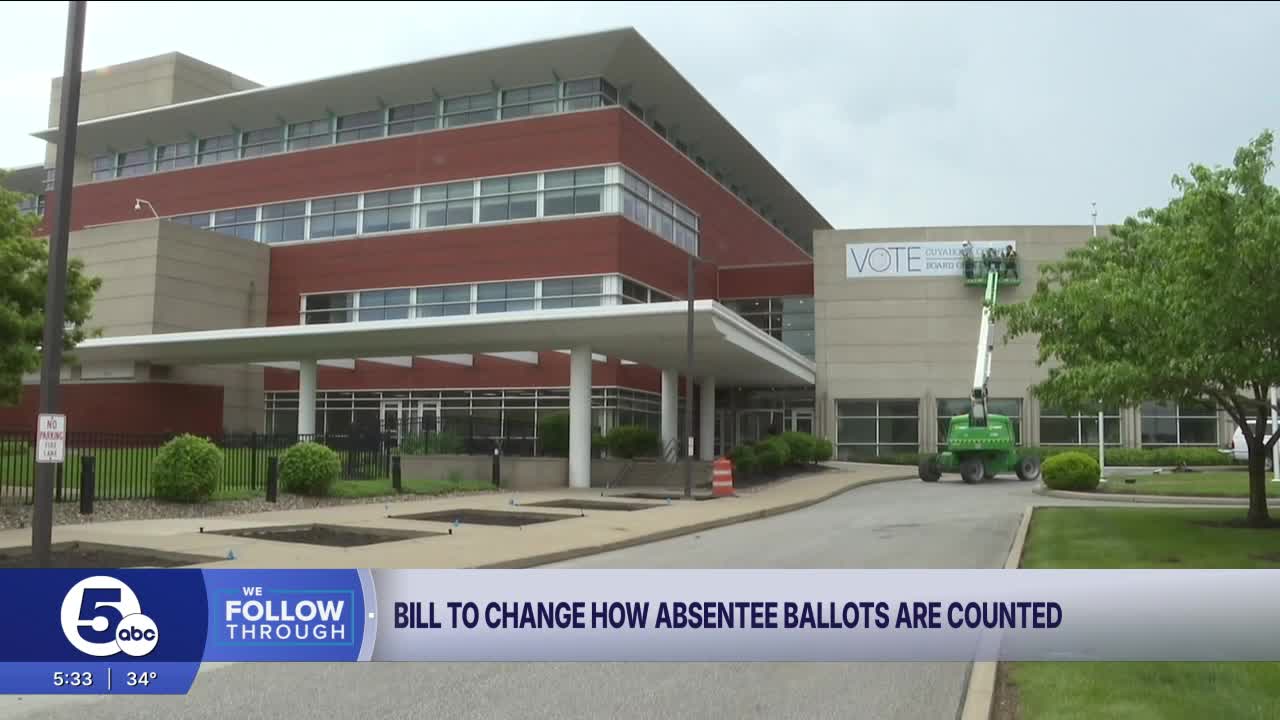COLUMBUS, Ohio — Under a bill passed by the state Senate reducing the voting timeline, thousands of ballots would have been thrown out. Now, the U.S. Supreme Court will decide whether or not states like Ohio can count absentee ballots after election night.
S.B. 293
When it comes to elections, every vote counts — especially in local races.
In Cincinnati, the Hamilton County BOE results show that at least 12 races were within 20 votes, with eight being within 10.
This is why voting rights advocate Jen Miller with the League of Women Voters of Ohio says the state's four-day grace period is essential. Ballots will still be counted as long as they are returned within four days of the election if they are postmarked before election day.
Thousands of valid ballots came in during that period, more than some races even had votes.
"It's incredibly important that every eligible voter can cast their ballot," Miller said. "Our concern with Senate Bill 293 would be that many votes would not count for something that's outside of the voter's control, which is the speed of the mail."
Concerns for military
The majority of Senate Republicans voted to pass S.B. 293, requiring the vast majority of ballots to be returned by the close of polls on election night.
When we first reported on the introduction of this legislation in October, veterans shared concerns about active-duty military members being disenfranchised. Following our coverage, the lawmakers made an exemption for uniformed and overseas absentee voters.
RELATED: Ohio GOP proposes restrictions on mail-in ballot deadline, prompting concern from veterans
The case for S.B. 293
Each of Republican Secretary of State Frank LaRose’s election audits has shown no proof of widespread voter fraud, but Senate President Rob McColley (R-Napoleon) said that this bill could help reassure skeptics.
"You still see people losing confidence in their election officials and the election systems in those states when there's uncertainty that extends beyond election night," McColley said.
For years, President Donald Trump and some GOP leaders have insisted, without evidence, that mail-in ballots are fraudulent. Following his lead, red states have started restricting access.
Supreme Court will weigh in
Now, the U.S. Supreme Court announced it will decide whether or not ballots can be counted after election day, as the RNC is suing Mississippi, which has a similar law to Ohio.
"We might wind up being mandated by the Supreme Court at some point in the future," McColley said. "We also, I do think, need to look at the 50 laboratories of democracy."
Ohio wouldn't be an outlier in the states that make the absentee deadline election day. Dozens of states, like Kentucky, Pennsylvania and Michigan, all require ballots to be in on or before election day.
Miller says S.B. 293 will hurt voters. According to state data, nearly 10,000 ballots came in during the four days after the 2024 presidential election.
"Senior citizens, people with disabilities, rural Ohioans, students — these are all populations that are more likely to need to vote absentee, but may also be affected by a slower mail service," she said.
The House will hear the bill in the coming months.
Follow statehouse reporter Morgan Trau on Twitter and Facebook.





